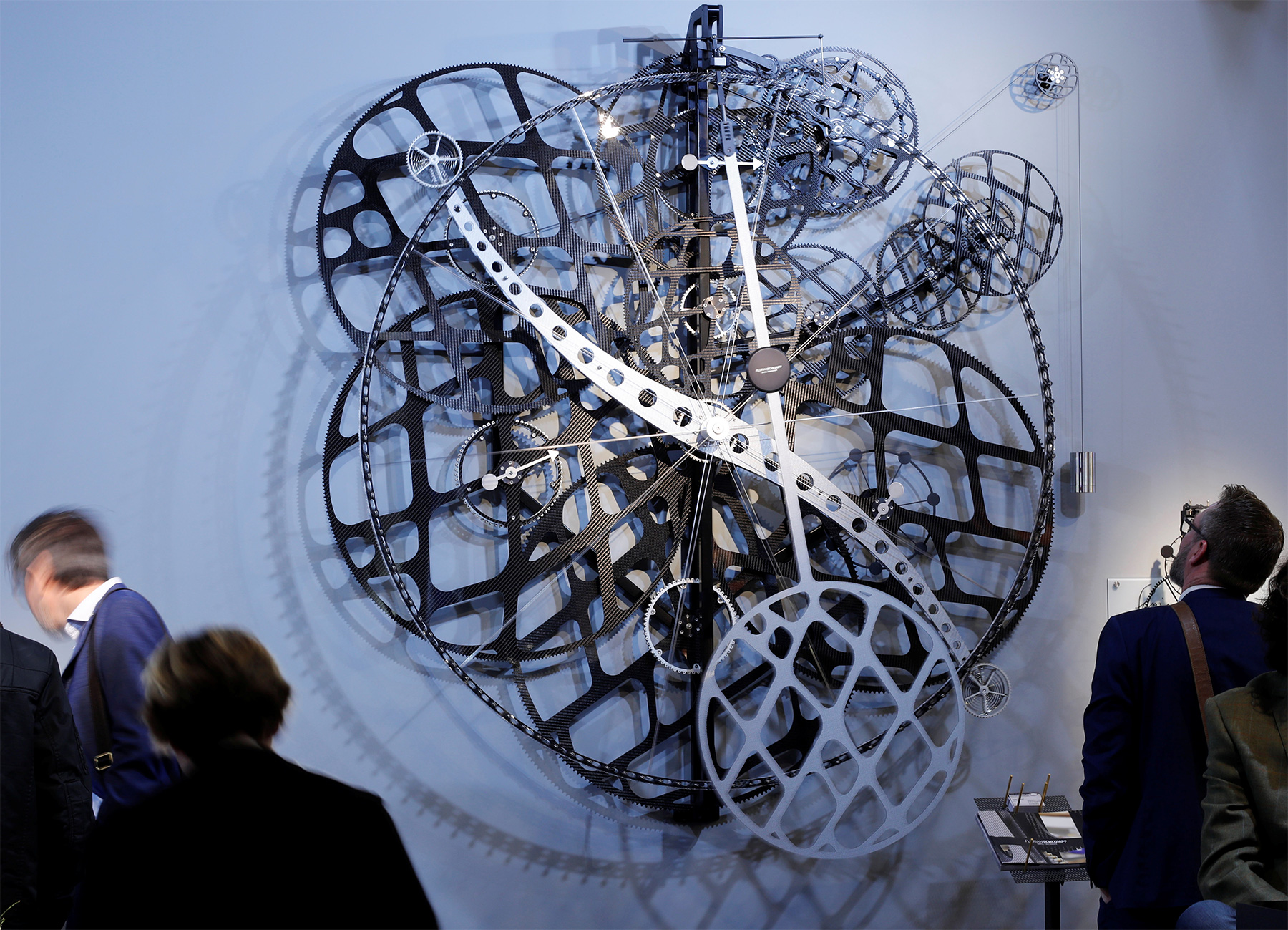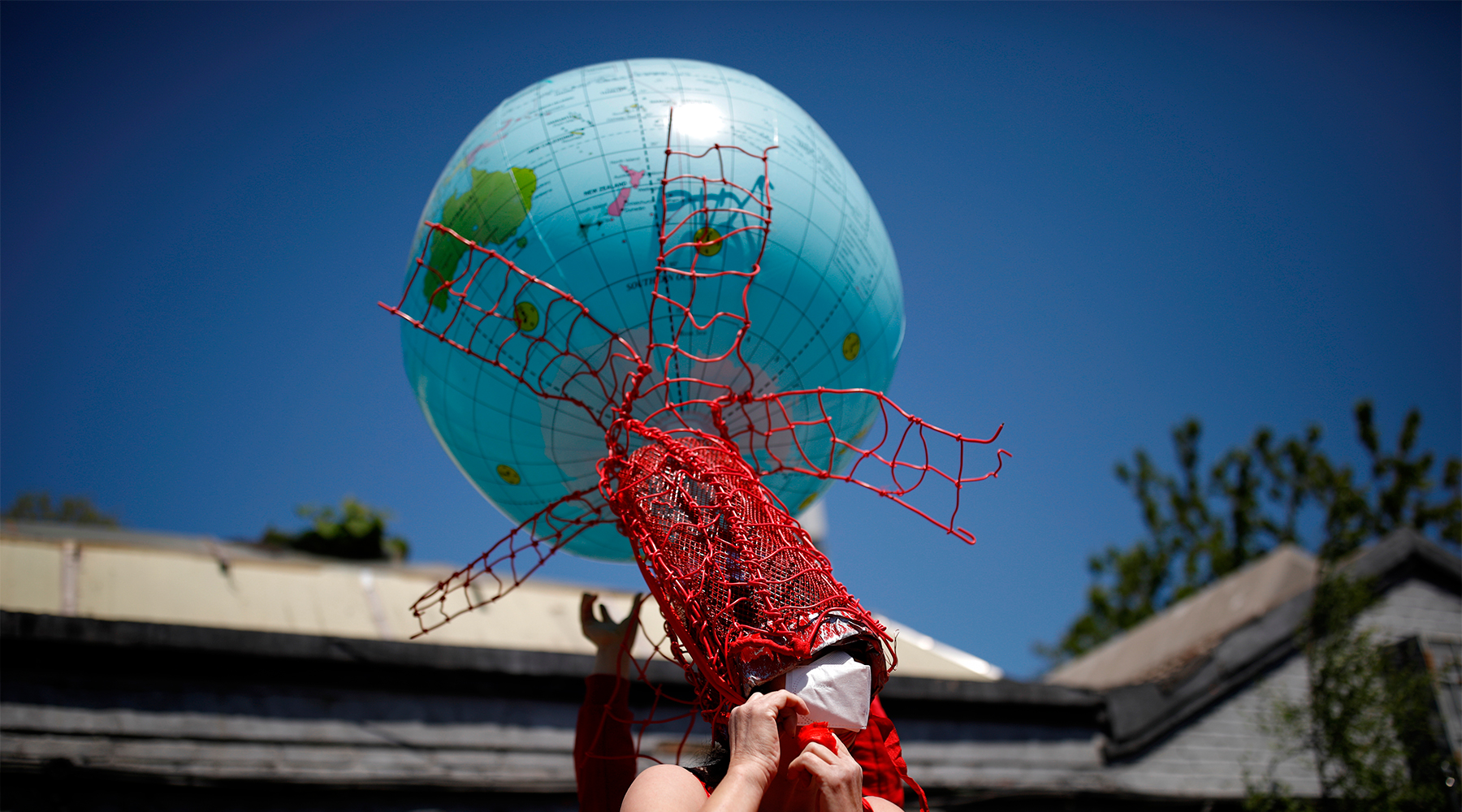Antiglobalists everywhere in the world have convincingly won their last battle, but in the common war against globalisation they will not win, in any event. The Hegelian "mole of history" continues its tireless work; albeit slowly and stumbling, albeit with stops and even retreats, but humanity is moving forward along the thorny path to future unity.
If we start from the experience of the already distant crisis of 2008–2009, assuming that we are on the way towards the lowest point of a new "de-globalisation stage" of the globalisation cycle, then we can relatively confidently predict another change of world development by the middle of this decade. If an additional adjustment is made for the more complex nature of the global cataclysms of 2020–2021, then the moment the vector changes will have to be shifted at least another two to three years into the future—closer to the end of third decade of the 21st century, which has only just begun.
Will even the most powerful representatives of the outgoing generation of politicians be able to successfully resist the challenges of populism, protectionism and regionalism? Are they capable of channelling the colossal energy of the collapse of the old international system in a peaceful way? The positive answers to these questions are far from obvious, but there are chances of success. If the numerous Bidens and Borrels, who still have considerable opportunities, turn out to be at the height of the tasks set before them by history, then they will somehow save humanity from some of the unpleasant surprises in the next few years. If they fail, the international system will face new difficult challenges.
If the “old” globalisation was associated with accelerated economic growth and with an increase in personal and public consumption, then in the course of the “new” globalisation, most likely, the main criterion for success will be to ensure the transition to sustainable development models, both at the national and global levels.
If the global processes at the beginning of the century reflected a universal public demand for freedom, then in the second quarter of the century we will most likely see a more articulated and more insistent demand for justice.
In all likelihood, many familiar algorithms of foreign policy will also change. Major international organisations, hopefully, will still remain by the end of the 20s. In any event, a significant part of international activity will not boil around or within rigid bureaucratised institutions, but around specific problems: political, social, environmental and so on. To solve these specific problems, mobile situational coalitions of participants will be formed—and not only by nation-states, but also with the involvement of the private sector, civil society institutions, and other participants in international affairs. Old hierarchies will gradually lose their meaning, the terms "superpower" and even "great power" will increasingly be perceived as archaic, with no sense in modern life.
What does all this mean for Russia? If the assumption about the probable timing of the next change in the vector of world development is in principle correct, and if globalisation in its new embodiment returns to the world on the horizon of five to eight years, then even today Russia needs to actively prepare for this change.
The country must be able to demonstrate results that exceed those in its attempts to integrate into Globalisation 1.0 at the beginning of the century, especially considering that Globalisation 2.0 will inevitably turn out to be a more complex, more contradictory, and in some ways even more competitive environment than its previous incarnation.
On January 1, 2021, we all met both the new year and the new, third decade of the 20th century. This is a good reason to think not only about possible events in world politics over the next twelve months, but also about the likely trends in the development of the international system over the next ten years.
First, let's get ourselves oriented and learn the terrain. Humanity today is going through a painful period of deglobalisation that affects all of us together and each one of us individually. This is not just about the immediate social or economic impact of the COVID-19 pandemic. Alarming failures in the usual mechanisms for the growth of interconnectedness and interdependence of countries and peoples did not begin yesterday, and they will not end tomorrow.
One can argue for a long time about how inevitable deglobalisation was and, if not, who exactly is responsible for its arrival. In any case, the global financial crisis of 2008–2009 and the post-crisis period of 2010–2013 showed that for the time being, it is possible to forget about the linear and especially about the exponential development of globalisation. After this crisis, some parameters of human connectivity (international trade, the volume of foreign direct investment) barely recovered until the middle of the last decade, and then collapsed again. In today's world, centrifugal processes have already accumulated tremendous inertia, and it would be naive to expect that any single event, even a very important one such as the Joe Biden administration coming to power in the United States or the creation of the Comprehensive Regional Economic Partnership in Asia, are able to stop them, much less to reverse them. It's time to come to terms with the fact, that the on-going deglobalisation is serious and will last a long time.
Serious and for a long time, but not forever, right? Antiglobalists everywhere in the world have convincingly won their last battle, but in the common war against globalisation they will not win, in any event. The Hegelian "mole of history" continues its tireless work; albeit slowly and stumbling, albeit with stops and even retreats, but humanity is moving forward along the thorny path to future unity.
The world is being pushed in this direction by two powerful factors, which have become stronger over the years, no matter what the current anti-globalisation crusaders may assert. First, the pressure of common problems increasingly faces everyone in the world—from climate change to the threat of new pandemics, which urgently require the unification of global society in the interest of common survival. The self-preservation instinct of the human population must somehow manifest itself—at least, we would very much like to hope so. Second, technological progress is accelerating, creating new opportunities for remote communications of all kinds from year to year. The physical space and resource potential of the planet are shrinking, the opportunities for geographically distributed models of work, study and socialisation are expanding, and Napoleon's old aphorism about geography as a destiny is increasingly losing its former axiomaticity.
Sooner or later, the world will somehow return to globalisation. Or rather, sooner or later, the world will create a new model of globalisation, which will be as different from the old model at the beginning of the century, as the modern Formula 1 car is incomparable to the first Ford Model T.
But all the same—sooner or later? When exactly will Globalisation 2.0 start? This is not an idle question, because the fate of entire generations depends on the answer to it. And not only generations of politicians, but hundreds of millions or even billions of people entering adulthood today, in five, ten or twenty years from now. What prospects are looming before these people? What professional and personal trajectories can they expect? In what value systems will they have to exist?
If we start from the experience of the already distant crisis of 2008-2009, assuming that we are on the way towards the lowest point of a new "de-globalisation stage" of the globalisation cycle, then we can relatively confidently predict another change of world development by the middle of this decade. If an additional adjustment is made for the more complex nature of the global cataclysms of 2020 -2021, then the moment the vector changes will have to be shifted at least another two to three years into the future—closer to the end of third decade of the 21st century, which has only just begun.
Let's try to start from this rather conventional chronology. According to it, humanity has five to eight years in reserve to prepare a new historical cycle of globalisation. Over these years, it is necessary not only to minimise the negative consequences of the (temporary) de-globalisation which is unfolding today, but also to formulate and agree on a global strategy for a new globalisation cycle. Well, and in some details—to radically update the political elites in most countries of the world, to learn how to successfully resist the right and left-wing populists, to work out modern algorithms of multilateral approaches to international problems and prevent a world war, a global ecological catastrophe, a new catastrophic pandemic or other annoying delays during the transition to these algorithms.
The tasks are serious, but within the framework of ten years of world history, they are quite manageable. The problem of smoothing out the inevitable negative effects of de-globalisation could already be tackled by such world leaders as Joseph Biden, Josep Borrell and Antonio Guterres. None of them mentally belong entirely to the 21st century; they all grew up and began their ascent to political heights in the Cold War era. None of them looks like a revolutionary, a prophet, or even a visionary. But, as they say, "the old horse will not spoil the furrow."
Will even the most powerful representatives of the outgoing generation of politicians be able to successfully resist the challenges of populism, protectionism and regionalism? Are they capable of channelling the colossal energy of the collapse of the old international system in a peaceful way? The positive answers to these questions are far from obvious, but there are chances of success. If the numerous Bidens and Borrels, who still have considerable opportunities, turn out to be at the height of the tasks set before them by history, then they will somehow save humanity from some of the unpleasant surprises in the next few years. If they fail, the international system will face new difficult challenges.
But the preparation of a new globalisation mega-project is clearly beyond the power of the outgoing generation of political leaders, whether it’s Biden or Borrell. There are generals created for defensive action, and there are generals born for offensive operations. There are managers who manage companies from their offices, and there are entrepreneurs who create the companies of the future in their garages. Already in the second half of this decade, when the vector of development changes, the world will need fresh ideas, which it will be useless to search for in the political experience of the last century.
In a slightly different set of circumstances, the natural world leaders of a new generation could be French President Emmanuel Macron or, say, Canadian Prime Minister Justin Trudeau. But they still are no leaders of the global revolution. Perhaps they were just unlucky, or they entered politics at the wrong time. Certain hopes for the beginning of the renewal can be associated with the upcoming parliamentary elections in Germany this fall. But, most likely, the time for a new global agenda has not yet come—the world is still at the end of an old era, and not at the start of a new one.
Let's not forget that the main issues of the new agenda will be fundamentally different not only from the current issues, but also from the Globalisation 1.0 era. Which ones—we can only guess so far. For example, if the victorious march of globalisation at the beginning of the century was marked by the strengthening of the conditional East, the weakening of the conditional West, then the fundamental issue of Globalisation 2.0 will most likely be the issue of a large-scale redistribution of resources between North and South in favour of the latter.
If the “old” globalisation was associated with accelerated economic growth and with an increase in personal and public consumption, then in the course of the “new” globalisation, most likely, the main criterion for success will be to ensure the transition to sustainable development models, both at the national and global levels.
If the global processes at the beginning of the century reflected a universal public demand for freedom, then in the second quarter of the century we will most likely see a more articulated and more insistent demand for justice.
In all likelihood, many familiar algorithms of foreign policy will also change. Major international organisations, hopefully, will still remain by the end of the 20s. In any event, a significant part of international activity will not boil around or within rigid bureaucratised institutions, but around specific problems: political, social, environmental and so on. To solve these specific problems, mobile situational coalitions of participants will be formed—and not only by nation-states, but also with the involvement of the private sector, civil society institutions, and other participants in international affairs. Old hierarchies will gradually lose their meaning, the terms "superpower" and even "great power" will increasingly be perceived as archaic, with no sense in modern life.
What does all this mean for Russia? In a sense, Moscow was very lucky: the crisis of the globalisation model at the beginning of the century actually nullified numerous Russian failures on the path towards integrating the country into the global economic and political system. Yes, Russian foreign policy over the past thirty years has made some mistakes and miscalculations, but what can we say about it now, if there is practically nowhere to integrate?
But it is unlikely that Russian politicians should rejoice in the epoch of deglobalisation that has come and stand in solidarity with the triumphant antiglobalists. Yes, Russian foreign policy feels comfortable amid the conditions of de-globalisation; properly in these conditions, the comparative advantages of Russia’s foreign policy style are most clearly manifested and its disadvantages are least noticeable. But if the assumption about the probable timing of the next change in the vector of world development is in principle correct, and if globalisation in its new embodiment returns to the world on the horizon of five to eight years, then even today Russia needs to actively prepare for this change.
The country must be able to demonstrate results that exceed those in its attempts to integrate into Globalisation 1.0 at the beginning of the century, especially considering that Globalisation 2.0 will inevitably turn out to be a more complex, more contradictory, and in some ways even more competitive environment than its previous incarnation.
Russia, like the other countries of the world, has several years to rebuild its system of foreign policy institutions, master the new rules of multilateral diplomacy, get rid of "bad assets" and find
its place in the coming world order. As the current Russian president likes to repeat on other occasions, "there is no time for reflection".
First published in the Valdai Discussion Club.








